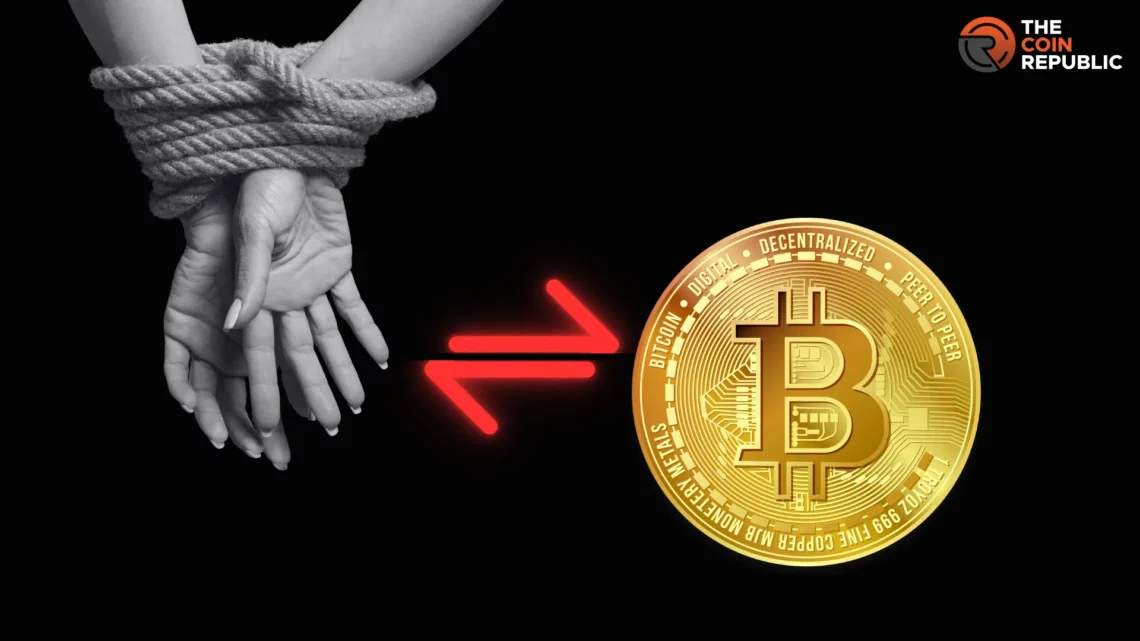The use of virtual currencies has increased significantly in human and drug trafficking. Out of all the virtual currencies, Bitcoin has become the most popular way to execute illegal transactions that support the business of smuggling and exploitation of people. The U.S. Department of Treasury has released an analysis recently.
Why Do Criminals Prefer Bitcoin?
The anonymity feature of virtual currency or cryptocurrency attracts criminals. They use this currency to avoid detection when paying for illegal activities such as human and drug trafficking.
It has increased the challenges faced by federal law to enforce laws against child and human trafficking. It has become difficult to track transactions that use crypto as a medium of exchange and peer-to-peer mobile payments.
The U.S. Government Accountability Office has found that in 2021, out of the 27 commercial trafficking marketplaces that were examined, 15 accepted virtual currencies. Virtual currency ATMs are standalone machines that allow buying and selling. The exchange of virtual currencies can be used for illegal activities such as laundering and drug trafficking.
Steps Taken By Federal Government To Address Crime Facilitated By Crypto
Multiple federal agencies were tasked with investigating and prosecuting trafficking cases that involved online marketplaces and virtual currency. It included federal law enforcement entities inside the Department of Justice and other agencies, including the Department of the Treasury, that support investigations of trafficking cases.
Recent actions and investigations:
- In 2016, the Department of Homeland Security’s immigration and customs enforcement’s homeland security investigations and the Secret Service identified and forfeited over $1.2 Million from the virtual currency wallet of a trafficker.
- In 2020, the Treasury’s Internal Revenue Service Cyber Crime Unit’s investigation helped shut down Helix. It was a dark web platform that laundered money for drug traffickers.
- The Treasury’s Financial Crimes Enforcement Network (FinCEN) issued guidelines to help financial institutions detect trafficking activities that involved virtual currencies.
- Federal banking, securities, and derivatives regulators oversee the compliance of financial institutions with banks’ AML requirements, including their reporting of suspicious activities.
Crypto transactions are permanently recorded on public blockchains which helps law enforcement agencies use blockchain analysis tools to investigate illegal activities.
However, criminals make use of privacy technology to hide the movements of funds across the blockchain and it thus becomes harder to track such illicit transactions.
FinCEN Released Report: Highlights
The period of 2020 and 2021 saw an upswing in the use of crypto, especially bitcoin, according to the financial firms’ government filings. In this period, the research found more than 2,311 reported uses of cryptocurrencies in trafficking activities. The transactions amounted to more than $412 Million.
The victims of these trafficking activities were forced to work as laborers, slaves, involuntary servitudes, peonage and other kinds of sex acts. In 2021, the reported uses were 1,975.
Andrea Gacki, Director at FinCEN, said that the reports from financial institutions are bringing out human traffickers, thus saving and protecting innocent lives. It also helps in law enforcement.

Adarsh Singh is a true connoisseur of Defi and Blockchain technologies, who left his job at a “Big 4” multinational finance firm to pursue crypto and NFT trading full-time. He has a strong background in finance, with MBA from a prestigious B-school. He delves deep into these innovative fields, unraveling their intricacies. Uncovering hidden gems, be it coins, tokens or NFTs, is his expertise. NFTs drive deep interest for him, and his creative analysis of NFTs opens up engaging narratives. He strives to bring decentralized digital assets accessible to the masses.


 Home
Home News
News










